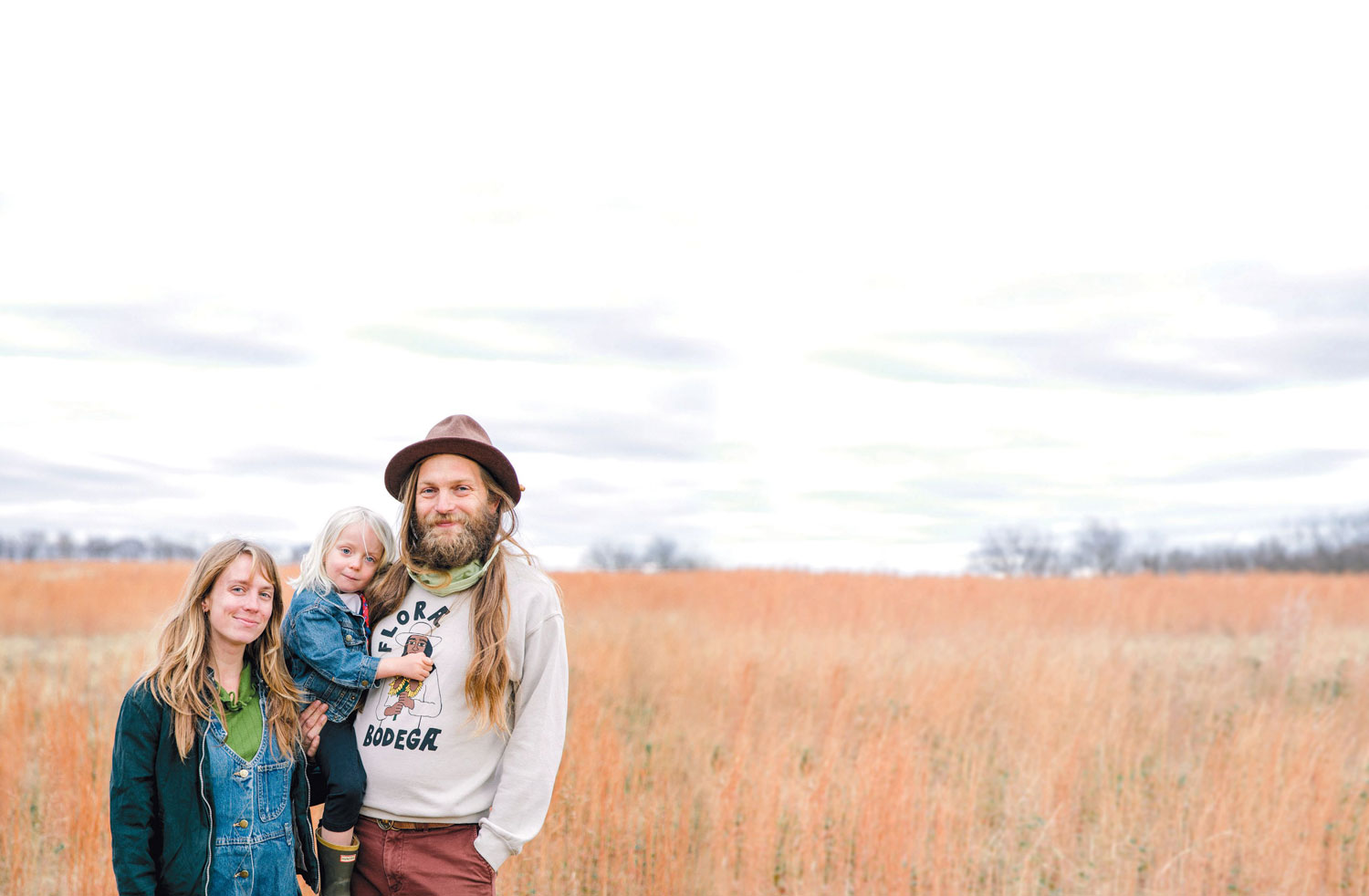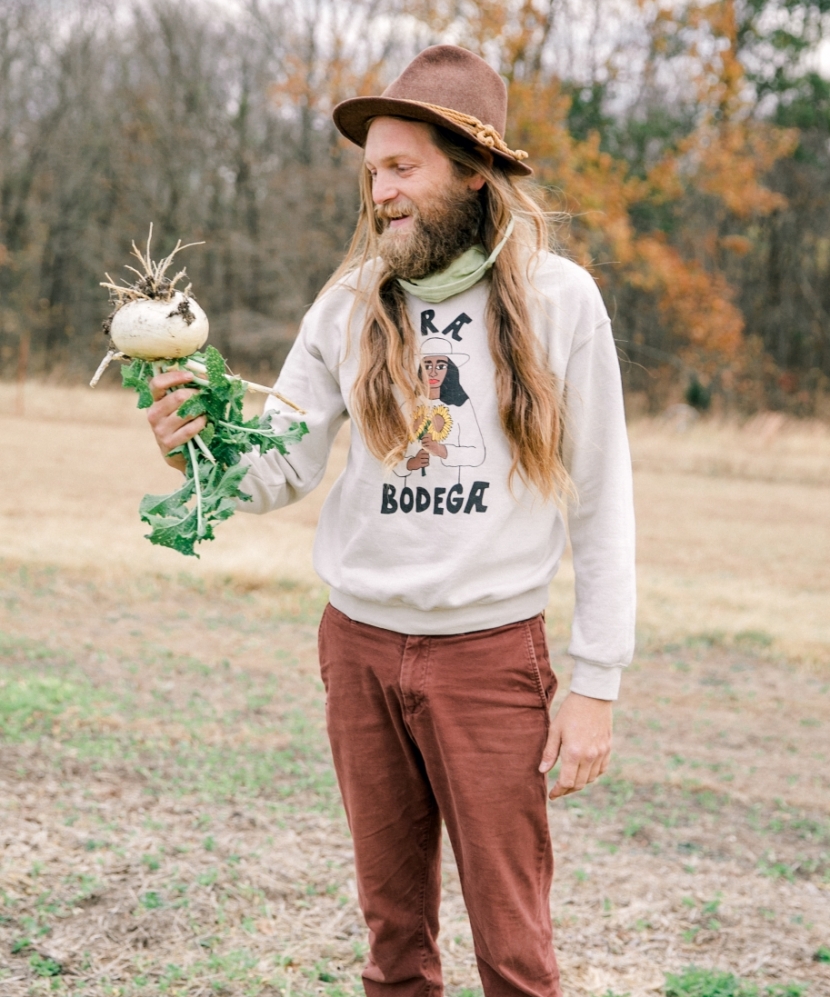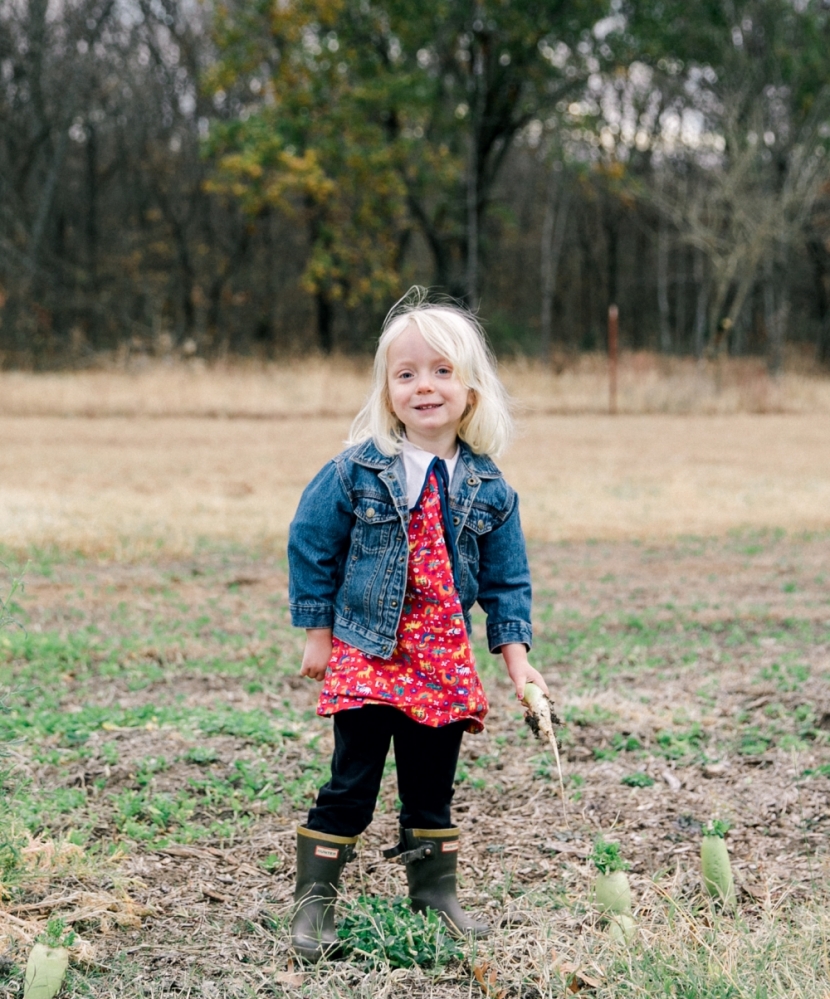Circleculture Farm - Building a Farm, One Step at a Time
During great change, Megan and Jacob Sanders are putting one foot in front of the other.
The Sanders recently concluded their adventure of spending the Oklahoma fall and early winter without power. “We just got power four days ago,” Jacob affirms with a smile that communicates relief more than pride. “Seventy-six days, no electricity.” Pandemic has meant changes for so many and has forced many to take things one step at a time. Megan and Jacob Sanders have big plans for Circleculture Farm, but are willing to take it slow.
After working on farms in the Pacfic Northwest, at both Oklahoma City’s Urban Agrarian and Commonwealth Urban Farms, running the Paseo Farmers Market, and going back to school, Megan and Jacob, along with their three-year-old daughter, Tulsi, are taking on their biggest project yet: forty acres. “We’re doing a very non-traditional route,” Jacob concedes. This route is located on the western edge of Okemah, OK, birthplace of Woody Guthrie, where the most common sounds are waving tall grass, steps of cattle, or the purr of the friendly barn cat. At the moment, their land, mostly forest and waves of native grass, includes an early patchwork of plots, small structures, and a few cows that, Tulsi is kind enough to advise, won’t knock you over.
The long-term plan includes off -grid cabins with wood grills and solar lights, trails, campgrounds, orchards, goats, ducks, and lots of room to grow. For the Sanders, this doesn’t happen overnight. It’s partly intentional, but also a function of the world we’re all living in. They’ve watched as farms miraculously appear outside of Oklahoma City. “Suddenly, there’s this farm that just pops up...and they have greens on every shelf. They were able to take out a huge loan, buy all the equipment that the people in the workshops tell them to get, and bust out.
They have an important role to play, but, unfortunately, that’s not everyone’s experience.” The approach at Circleculture Farm feels less like a pop-up farm and more like a long-term investment in the land, their family, and their community. The economics of our pandemic world don’t allow for money to be thrown at this project, so they focus on each element of the land and determine what they’re able to do with what they’ve got. Right now, that is enough to produce food for themselves and to sell at farmers markets as well as to grow flowers with which Megan produces beautiful bouquets and custom dried flower wreaths that provide a significant source of revenue for the Farm. Depending on the time of year, you can find them selling through The Paseo Farmers Market and Instagram.
One of their most engaging concepts is their popular CSA model, the “Whole Health CSA.” CSA stands for community-supported agriculture. In a traditional CSA model, a customer agrees to a regular payment cycle and in return, the farmer provides a selection of produce to be delivered or picked up at an agreed upon frequency. In this standard model, the customer’s interaction with the land is often limited to the bag of fresh, local veggies and fruits they pick up from the local grower or from a community drop point. It’s a great way to support your local farmers, but remains transactional throughout. This is not the case for the Whole Health CSA. For the Sanders, a CSA means engagement with a community. CSA members get access to the Circleculture Farm itself for camping and walking and are provided with an opportunity to help care for the land. “The CSA isn’t just a group of customers. You guys are essentially invested in the farm, you might as well constantly and consistently enjoy it. Hike the trails, mushroom hunt, and hang out,” Jacob encourages. Using a CSA as a vehicle for building community speaks to a larger cultural movement towards focusing on the fundamentals of people and community over the urge to use land and farming as a means for base nutrient provision.
Similar to the holistic approach of their CSA, Megan and Jacob believe their responsibilities go beyond productive use of their land. They also participate in lobbying efforts to affect land use policy on the national, state, and county level. As Congress contemplated action for the 2018 Agriculture Improvement Act, commonly known as The Farm Bill, the Sanders were in Washington, DC with National Young Farmers Coalition attending lectures and advocating for the importance and impact of various programs, including expanding USDA Farm Service Agency loans programs as a means to further racial justice in the food system. “It changed the way I think about farming,” Megan attests. Farming may have been a business plan to her in the past, but now it’s equally about the social and political dynamics. “[The] methods that many famous farmers are selling...these are BIPOC [Black Indigenous People of Color] farmers’ ancestral methods.” Being conscious and respectful of the land, its people, and its history is the perfect complement to the development of the farm right now and in the years to follow.
Persimmons, paw paws, various fungi, Meyer lemons, goats, and outdoor farm-to-table dinners are all in the future of Circleculture Farms. Forest management will provide hickory and oak for smoking and mushroom growth, while maintaining viable space for deer and bobcats. Tulsi will grow up with her friendly cattle. At a time with so much rapid change and great unknown, it will be worth checking in with Jacob and Megan to see if there is space for more members in the CSA that provides local produce, thoughtful community, and a place to camp.
> Circleculture Farm, 10955 NS367 Rd, Okemah; circleculturefarm.com; instagram.com/circleculturefarm






